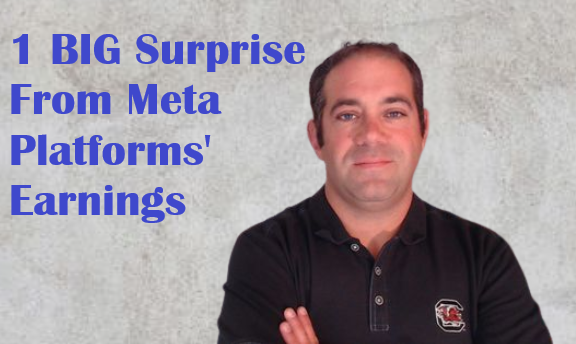Facebook (FB 2.08%) wants its marketers to know you as well as it knows you.
This morning's Wall Street Journal details the leading social networking website's initiative to serve up more effective ads.
The good news for shareholders is that if Facebook is doing well now -- with analysts targeting a profit of roughly $1.2 billion on nearly $5 billion in revenue this year -- imagine what Facebook can be doing if it delivers more value to its marketers.
The end result is also better for Facebook's 955 million active users. Who doesn't want to see better ads? If you're planning a trip to Puerto Rico or you've been checking out websites offering online degree programs, wouldn't you rather see relevant ads for San Juan hotel discounts or Web-based educators than the typical assortment of ads offering you the one secret to a flatter belly?
There's a rub, of course. Facebook can't serve you better ads unless it shares targeting information with its advertisers.
Poking a hornet's nest
The Wall Street Journal points out that Google (GOOG 1.16%) and Yahoo! (NASDAQ: YHOO) have been doing similar ad targeting for years.
The next time you're on a bedding retailer website pricing a replacement mattress, don't be surprised when you see ads by rival retailers as you surf over to websites that outsource their ads through a dot-com giant.
Skeptics wipe out their browser cookies like Cookie Monster or avoid tracking sites altogether, but it's just a part of being on the Internet.
Facebook knows where you are and what you like. Why shouldn't it be using that advantage to serve up more lucrative ads?
It's not snooping if it's true
In Facebook's defense, it's not as if it's actually handing over information. The website operator doesn't sell data about individual users or even let marketers see the data directly. If a movie studio wants to reach horror movie fans in Atlanta, it has to trust Facebook's ability to serve that ad to the target audience.
Is that so bad? The Internet is such an effective marketing tool when pitted against print or television because it can more effectively target recipients. More importantly, an online campaign is typically fully accountable. The advertiser knows how many leads were generated, and what that is worth to the company.
On that front, Facebook is doing very well.
A Datalogix study followed nearly 50 ad campaigns on Facebook, showing that $1 spent in sales led to at least $3 in incremental sales in at least 70% of the cases.
Privacy rights activists may not be happy about it, but Facebook wasn't going to ignore the low-lying fruit forever.
After all, this isn't about Facebook's real estate anymore. Just as Google has canvassed the Web with its AdSense program, Facebook revealed last month that it will begin placing ads on third-party smartphone apps. Google is the top dog in this space already, followed by Millennial Media (NYSE: MM).
Facebook is already serving ads on Zynga's (ZNGA +0.00%) namesake website, and it remains to be seen if Facebook will be able to wrestle the social gaming giant's mobile display business from Millennial Media. It's hard to bet against Facebook's chances.
Money and might matter
There's nothing stopping Facebook, outside of regulators listening to the fears of privacy rights advocates.
Facebook certainly has the money to make it happen, closing out its latest quarter with $10.2 billion on its balance sheet. Facebook also doesn't lack the data. It's not just about the 955 million users. We're talking about more than 100 billion friendship connections, and what that means in terms of data that Facebook is privy to.
The only thing that can stop Facebook from excelling here is the actual user base. Facebook saw its much smaller user base recoil four years ago when the site was accused of going too far in tracking and sharing member shopping and consumption data through its short-lived Beacon initiative.
In the end, it will be up to Facebook's users to decide if the site can get away with it. Just because they let Google and Yahoo! get away with it doesn't mean that Facebook will get a free pass. This is, after all, Facebook.
Facebook Groups can start up. A link to this very article may go viral. Unlike the bogus chatter that goes around from time to time -- arguing that Facebook is about to charge its users -- this story is very real.
Facebook will have to educate its users on the merits of indirect sharing of information with sponsors. Mark Zuckerberg isn't Big Brother. The enlightenment process -- and digestion process that follows -- is everything.
If successful here, Facebook's stock will be sharply higher a year from now. If it's not, either Facebook's user base will contract or it will have to once again take a step back on its aggressive yet understandable monetization dreams.
A world of opportunity
There's a new premium report on Facebook detailing the opportunities and challenges in store for its shareholders. The report includes a full year of updates, so time's ticking. Click here to get started.







